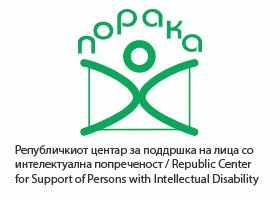New partnerships of PORAKA International Conference “Innovative approaches in the work with children with disability: Experiences from Kyrgyzstan and international experiences”
The organisation HealthProm in partnership with the Ministry of Social Protection of the population in Kyrgyzstan, the Association of parents with children with disability – ARDI and the Non-Governmental Organisation “Sola Kol, and in cooperation with Handicap International, ICCO an the Coalition “For Democratic and Civil Society: organised international conference “Innovative approaches in the work with children with disability: Experiences from Kyrgyzstan and international experiences”.
The conference was held in the Hotel “Ak Keme” in Bishkek – Kyrgyzstan in the period 1st – 3rd March 2011, and was supported by Soros – Kyrgyzstan through the programme East – East: Partnerships without borders, by GTZ and Big Lottery Fund. Over 150 participants attended the conference – representatives of organisations and institutions from 13 countries, including Republic of Macedonia. Invited on the behalf of the organisers, and supported by the Foundation Instutute Open Society Macedonia and the Soros Foundation – Kyrgyzstan through the programme “East-East: Partnerships without Borders”, four representatives of the Republic centre for Support of Persons with Intellectual Disability – PORAKA attended the conference.
The goal of the conference was to present and debate different innovative approaches in the work with chi ldren with disability in Kyrgyzstan and the countries attending the conference, to provide exchange of practical experiences in certain areas and questions related to care and protection of children with disability. Moreover, participants to be introduced with the ongoing policies and programmes linked to service provision for persons with disability, as well as establishing new partnerships and o pportunities for networking and exchange of experiences and knowledge between the organisations and institutions that participated on the conference.
The focus of the conference was aimed towards children with intellectual disability and their families. The conference was characterized by the good organisation, interesting presentations and high level discussions and debates, especially from the representatives of the parents’ associations from Kyrgyzstan, who made the most of from the international presence to familiarise themselves regarding the new trends in the area of protection of children with intellectual disability.
Almost all important areas regarding children and persons with disability were covered during the conference: early intervention and early treatment, education (special and inclusive), the need for social services, health protection and rehabilitation, social protection and social rights, de-institutionalisation, accessibility and availability, etc. The plenary sessions provided presentation of the current situation in the mentioned areas, with review to governmental policies and non-governmental initiatives in the region of Central Asia, as well as the good practices from Macedonia, Latvia, Kazakhstan, Russia, Great Britain and Tajikistan. Within the workshops, more detailed practices were shared, also the difficulties that persons with disability, their parents and the organisations are facing. The participants searched for possible solutions for overcoming the adverse conditions and increasing the family support.
The representatives of the Republic Centre for Supporty of Persons with Intellectual Disability – PORAKA actively participated on the conference, including participation on the official opening, presentations on plenary sessions and working groups with the following topics: “Good practices in participating countries”, “The role of the non-governmental sector in supporting families with children with disability”, “Social services for support of persons with intellectual disability and their families: Macedonian experiences”, “Developing effective networks for protection of the rights of persons with disability”, which contributed to the realisation of the conference’s goals. The presentations rose interest within the participants, so during the discussions and within the informal part of the conference, PORAKA’s team shared its experiences in more details.
The representatives of the Republic Centre for Supporty of Persons with Intellectual Disability – PORAKA actively participated on the conference, including participation on the official opening, presentations on plenary sessions and working groups with the following topics: “Good practices in participating countries”, “The role of the non-governmental sector in supporting families with children with disability”, “Social services for support of persons with intellectual disability and their families: Macedonian experiences”, “Developing effective networks for protection of the rights of persons with disability”, which contributed to the realisation of the conference’s goals. The presentations rose interest within the participants, so during the discussions and within the informal part of the conference, PORAKA’s team shared its experiences in more details.
In the closing session, the participants determined the basic points of references arising from the conference. Working group was formed to work on a Declaration consisted of conclusions and recommendations from this International Conference, which shall be finalised and made official till the end of March 2011 as a concrete result from the conference. With support from the Foundation Institute Open Society Macedonia and the Soros Foundation – Kyrgyzstan through the programme “East – East: Partnerships without borders”, PORAKA will host a group of 12 representatives of non-governmental organisations from Kyrgyzstan, Tajikistan and Kazakhstan, who will participate on a study visit to Macedonia. This programme presents a good opportunity fro sharing experiences among countries from different regions, in order to advance the work and the rights of persons with intellectual disability, but also the work on joint projects.



